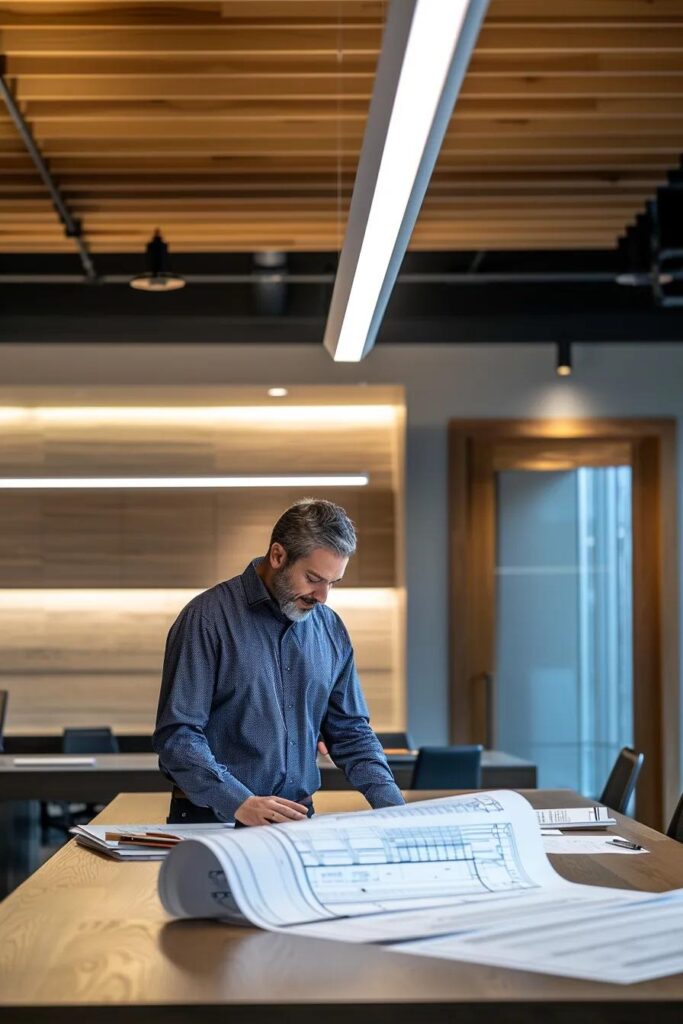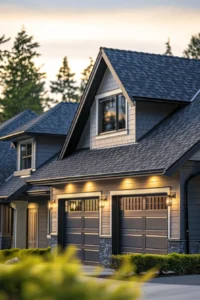Cost of Roof Repair: How to Find Affordable Services
Roof repair is an essential maintenance task for preserving a property’s integrity and value. In some cases, a roofleak repair might be necessary to address minor issues before they develop into more severe problems. Homeowners face fluctuating costs influenced by material quality, labor, location, permits, and cleanup. This article discusses factors influencing roof repair costs, average expenses for different repairs, tips for finding affordable services, and the benefits of preventative maintenance.
Key Takeaways
- Roof repair costs depend on materials, labor, location, and extra fees.
- Repair types such as shingle, leak, flashing, or gutter repairs have distinct cost ranges.
- Multiple estimates and reputable, local contractors help achieve affordable repairs.
- Regular inspections and minor fixes can reduce long-term expenses.
- Local codes, weather, and contractor expertise largely affect repair pricing.
What Factors Affect the Cost of Roof Repair?
Costs depend on the roof’s condition and age, the roofing materials used, and local labor rates. Asphalt shingles usually cost less than metal or tile options. Regions with higher living costs have higher labor rates, and additional fees for permits, waste disposal, or cleanup may apply. Effective budgeting requires understanding these various factors.
How Do Roofing Materials Influence Roof Repair Prices?
The type of material directly affects cost. Asphalt shingles are inexpensive and ubiquitous, while metal roofs, tiles, slate, or clay are pricier and often need specialized labor. Although higher-quality materials have a steeper initial cost, they can reduce long-term repair needs.
What Are Typical Labor Costs for Roof Repair?
Labor may account for 30% to 60% of the repair bill. The work complexity, such as multiple shingle layers or structural fixes, affects time and cost. Job location, roof design, and contractor expertise also influence labor fees.
How Does Geographic Location Affect Roof Repair Costs?
High-cost areas often incur premium contractor rates. Local weather, such as heavy rains, snow, or high winds, accelerates roof wear, while different local codes and permit fees further affect pricing. This regional variation makes localized quotes crucial.
What Other Expenses Should You Expect in Roof Repair?
Additional costs can include permit fees, waste disposal, scaffolding, safety equipment, and cleanup. Unforeseen issues like structural problems or water damage may also increase the final expense, so it’s wise to include a budget buffer.
What Are the Average Costs for Different Types of Roof Repairs?
Average repair costs vary by type. Knowing these ranges aids effective budgeting and decision-making on whether to repair or replace your roof.
How Much Does Shingle Repair Typically Cost?
Minor shingle repairs may cost around $150 to $400, while extensive repairs might exceed $1,000. Costs depend on labor rates, shingle type, and market conditions. Repair work includes replacing damaged shingles and inspecting underlying materials for leaks.
What Is the Cost Range for RoofLeak Repairs?
Leak repairs vary with severity. Minor leaks are typically resolved for $300 to $1,000. Severe leaks—with potential interior or structural damage—may cost $1,000 to $3,000. Prompt action is essential to prevent additional damage.
How Much Does Flashing Repair Cost?
Flashing repairs around chimneys, vents, or skylights generally range from $200 to $600. Complex cases or hard-to-reach areas can drive up the price, but proper flashing prevents costly water intrusion.
What Are the Costs for Gutter and Other Related Repairs?
Gutter repairs vary from $100 to $300 for minor fixes, while complete overhauls can cost between $500 and $2,000. Repairs may also address related elements like soffits or fascia boards, crucial for preventing damage to the attic or foundation.
How Can You Find Affordable Roof Repair Services?
Affordable roof repair requires a strategic approach: obtain multiple estimates, verify contractor credentials, and consider seasonal discounts. Focusing on both cost and repair longevity is key to choosing the right contractor.
How Do You Get an Accurate Roof Repair Estimate?
Request detailed, itemized quotes covering materials, labor, and additional fees. On-site inspections help ensure accuracy. Comparing multiple estimates and asking for references can verify a contractor’s experience and fairness in pricing.
What Should You Look for When Choosing a Roofing Contractor?
Choose contractors who are licensed, insured, and have strong local reputations. Look for detailed warranties and scopes of work. Local contractors often understand regional weather patterns and codes, ensuring tailored service and fewer disputes.
What Questions Should You Ask a Roofing Contractor Before Hiring?
Ask about their experience with similar roofs, request detailed written estimates, inquire about warranties on work and materials, and discuss how they handle potential issues like water damage or structural problems.
What Financing Options Are Available for Roof Repair?
Financing options such as home improvement loans, credit lines, or in-house financing can ease the cost burden. Some contractors offer installment plans or seasonal promotions. It is also useful to check if insurance claims might cover part of the expense.
How Can Preventative Maintenance Reduce Roof Repair Costs?
Regular maintenance—including inspections, cleaning, and minor repairs—can prevent small issues from escalating into costly damage. Routine upkeep preserves the roof’s structural integrity and extends its lifespan, while reducing the risk of interior water damage.
What Is Included in a RoofInspection Checklist?
A complete inspection reviews shingles, flashing, gutters, skylights, underlayment, vents, and chimneys. It checks for water damage, debris accumulation, and insulation issues. An accurate inspection report helps establish a proactive maintenance schedule.
How Can Regular Maintenance Extend the Life of Your Roof?
Scheduled cleaning and prompt repairs can extend roof life by up to 50%. Routine maintenance removes debris, prevents water buildup, and detects early signs of damage, reducing the likelihood of extensive repairs.
What Are the Benefits of Scheduling Routine Roof Maintenance?
Regular maintenance improves energy efficiency, prolongs roof life, maintains warranties, and increases property resale value. It also helps avoid emergency repairs that can disrupt daily life and incur high costs.
What Are the Signs That Your Roof Needs Repair?
Early detection of issues such as leaks, missing or damaged shingles, and visible wear is critical to avoid major repairs. Timely intervention protects the roof’s integrity and the home’s curb appeal.
How to Identify Common Roof Damage Signs Like Leaks and Missing Shingles?
Look for water stains, cracked or curling shingles, sagging areas, and granule loss after storms. These signs indicate that small problems could become expensive if left unaddressed.
When Should You Schedule a Roof Repair?
Schedule repairs as soon as damage signs appear, especially after severe weather events. Early repairs are generally less disruptive and less expensive than emergency work needed after extensive damage.
How Does Early Detection Affect Repair Costs?
Early detection reduces labor and material costs by preventing extensive damage. Routine inspections and prompt interventions mean shorter repair times and significantly lower long-term expenses.
How Do Local Building Codes and Weather Impact Roof Repair Costs?
Local building codes specify roofing materials and installation methods, affecting both labor and materials costs. Weather conditions such as heavy rain, snow, and wind accelerate wear, increasing the need for frequent maintenance and repairs.
What Local Building Codes Should You Know Before Repairing Your Roof?
Be aware of local regulations regarding shingle weight, attic ventilation, and permit requirements. Failure to adhere to these codes can result in fines or mandated rework, raising repair costs.
How Do Weather Patterns Influence Roof Repair Needs and Costs?
Extreme weather—such as frequent storms, heavy snowfall, or prolonged sun exposure—can cause rapid material degradation. Proper maintenance and weather-resistant materials are essential to reducing repair frequency and costs.
What Are the Benefits of Choosing a Local Roofing Contractor?
Local contractors offer the advantage of familiarity with regional weather, building codes, and suitable materials. Their proximity allows for faster service and often lower transportation costs.
How Does Local Expertise Improve Roof Repair Quality and Cost?
Local roofers understand regional challenges, can source competitively priced materials, and provide efficient repairs. Their knowledge minimizes the risk of recurring issues, leading to higher customer satisfaction.
What Customer Testimonials Support Choosing Local Roofers?
Homeowners value local contractors for their prompt service, transparent pricing, and quality workmanship. Positive reviews often cite clear communication and trustworthy service, reinforcing the benefits of local expertise.
Frequently Asked Questions
Q: How often should I have my roofinspected for repairs? A: At least once a year, especially after severe weather, to catch issues early and minimize repair costs.
Q: What factors most significantly affect roofrepair costs? A: Material choices, labor rates, geographic location, and additional fees such as permits and disposal.
Q: Can preventative maintenance really extend the lifespan of my roof? A: Yes, regular inspections and minor repairs can prevent small issues from becoming major repairs.
Q: Why choose a local roofingcontractor over a large company? A: Local contractors have valuable expertise on regional codes and weather, offer personalized service, and often provide cost-effective solutions.
Q: Are financing options available for costly roofrepairs? A: Many contractors offer financing options such as installment plans and home improvement loans to ease repair costs.
Final Thoughts
Roof repair costs are influenced by materials, labor, location, and additional fees. Homeowners can optimize these costs by obtaining detailed estimates, choosing reputable local contractors, and investing in regular maintenance. Early detection and preventative care are essential to prolonging roof life and reducing long-term expenses. A proactive approach with knowledgeable roofing experts, like those at rooftitan, helps protect your property’s value and provides peace of mind.



